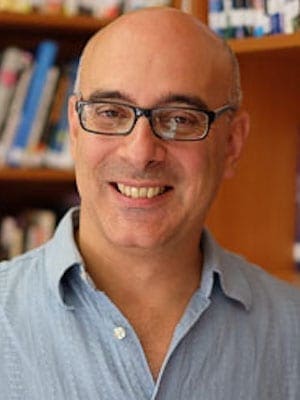Maher Hathout compared Islam to a diamond when addressing a question about the reform and renewal in Islam.
During the Muslim Public Affairs Council’s 2014 general convention, he confessed that this diamond had gathered much dust over the centuries and that it needed to be cleaned up in order to convey its true beauty and the shine of its multiple facets.
Hathout, who passed away in early January, was a prominent leader who has been described by the media as “the father of the American Muslim identity,” and he will be missed.
With all the horrors perpetrated in recent years in the name of Islam, and with the prominent stance of global Muslim religious leaders against the violence committed in its name, one may legitimately ask the question: “Can religion be reformed?”
When medieval Christianity was at its worst, waging violence in the name of Christ, carrying the cross as a banner of war and selling heavenly real estate to those who would carry out these acts, it was voices within Christianity that owned up to the horrors and brought about the change. Will we see the same happen within the Muslim world?
There are those who listen to the Muslim condemnations of violence and who claim that they are nothing but lies and dissimulation, a further conspiracy and concealment of the truth on the part of Muslim leaders.
One can, of course, point to the violence at the Paris headquarters of the French satirical paper Charlie Hebdo and conclude, “This is the true face of Islam.”
But one can also listen to the Muslim condemnations, based on authoritative interpretations of Islam’s founding texts themselves, and see change and transformation on the horizon.
If nothing else, what the violence of recent years has done has been to push Muslim scholars and leaders the world over to unprecedented efforts at reinterpreting the texts that have classically been used by radical Muslims to justify killing and war in the name of Islam.
Given the significance of the principle of consensus (“ijmaa”) in the Muslim tradition, these new (or renewed) interpretations now represent an important precedent that will leave its mark on the way that Islam is understood and lived out globally.
Reform and renewal in Islam are primarily the responsibility of Muslims, just as it is the primary responsibility of Christians to bring about reform in Christianity.
From a biblical perspective, renewal is to be a constant and continual process. It will therefore not do to set up some sort of “committee for the reform of religion.” Instead we need to view reform and renewal, not as an event, but as a function.
Neither Christians nor Muslims in times of crisis can simply stand by, waiting for a reformer to come to the rescue. What we need is a heart and mind for reform and renewal.
At this critical juncture, then, let us not pick up stones and throw them at our ailing neighbor amid the rioting clamor of “Islam has revealed its true face!”
Instead, we must renew our efforts to reach out to our neighbor and engage them in saying, “How can we help you get rid of this sickness from your midst? How can we change our own behavior too, in a way that helps you clean up your house from this mess?”
And perhaps most important: “Where have we sinned against you and pushed those fanatical elements among you to despair and deviousness?”
Hathout’s dusty diamond is not the problem of Muslims alone. If we stand graciously by Muslims as they seek to dust off the multiple facets of their precious gem, perhaps we will be able to see in that shine the outlines of our own image and, in turn, do some further thinking on how to dust off our own diamond.
 Martin Accad is director of the Institute of Middle East Studies at Arab Baptist Theological Seminary in Beirut. A version of this column first appeared on the IMES blog and is used with permission. You can follow him on Twitter @marzaatar and IMES @IMESLebanon.
Martin Accad is director of the Institute of Middle East Studies at Arab Baptist Theological Seminary in Beirut. A version of this column first appeared on the IMES blog and is used with permission. You can follow him on Twitter @marzaatar and IMES @IMESLebanon.

